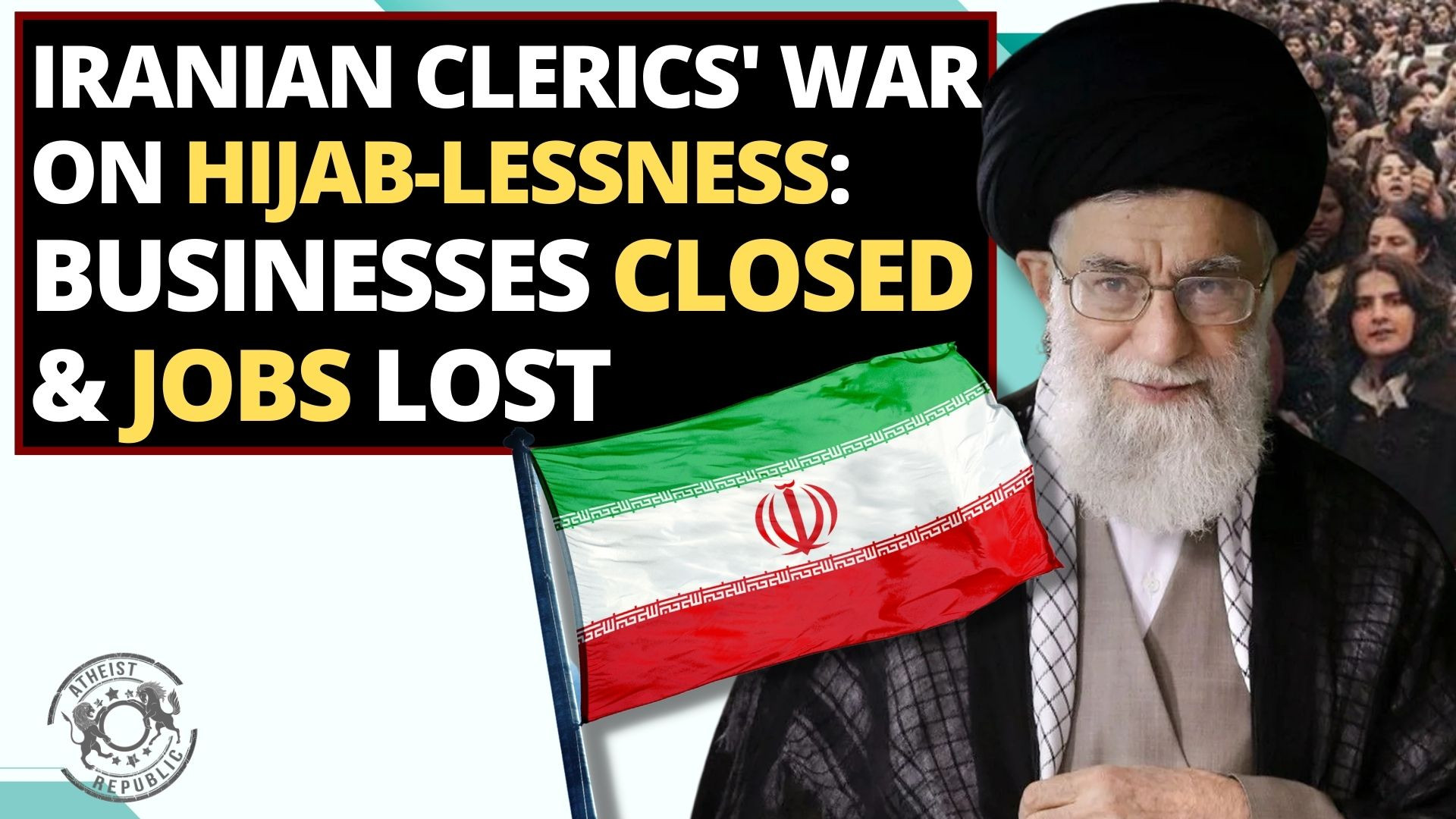
As Iran’s government continues to crack down on dissent against its mandatory hijab laws and enforce them more strictly, the policy created an unintended negative economic consequence: Massive unemployment among tens of thousands of Iranians.
The considerable loss of jobs comes as the Islamic Republic closed down at least 2,000 businesses in March alone after women refused to comply with its mandatory hijab rules, resulting in tens of thousands losing their jobs.
Iran Closing Businesses Not Abiding by Hijab Law https://t.co/bAgJ8YYgNw
— Voice of America (@VOANews) April 27, 2023
Several more shops have also been shut down in the country’s capital, Tehran, after female customers refused to abide by the government’s mandatory hijab laws, causing more unemployment.
According to a report by Fars News Agency, the semi-official news agency affiliated with the country’s Islamic Revolutionary Guard Corps or IRGC, 13 cafes and restaurants were forced to close down because female customers and staff did not follow the mandatory hijab laws.
Tens of thousands in Iran have lost their jobs as the Iranian regime closed at least 2,000 businesses since late March for women’s refusal to wear compulsory hijab.https://t.co/Xxyef32lmP pic.twitter.com/xH1TS3NUm7
— Iran International English (@IranIntl_En) April 27, 2023
On the flip side, some supporters of the Islamic Republic were furious after Opal Mall briefly reopened. But while this significant shopping center in northern Iran reopened for quite some time, some stores inside the mall had to be closed down.
Some shops reportedly offered discounts and other deals to female customers wearing a hijab. However, the owners of these stores reportedly denied publishing the offers and apologized.
But on April 25th, authorities announced they closed down the Opal Mall again, affecting over 450 establishments. Shargh Daily, an Iranian media outlet with a reformist bent, reported that the shopping center’s closure alone affected over 2,500 jobs.
Don't these businesses pay tax. Government cutting off their nose to spite their face. Gov obviously never going to listen to the wishes of Iranian people, they need to go.
— Joan (@Joan63648614) April 27, 2023
They also reported that the 2,000 jobs that had to be closed in March included restaurants, cafes, tourist accommodations, retail shops, a counseling clinic, and a gym. More hardline Iranian media outlets reported that some businesses owned by celebrities and football players, mainly cafes or restaurants, either received warnings or were shut down entirely after failing to follow the compulsory hijab rules.
This level of incompetence and stupidity would be hilarious if it wasn’t literally killing innocent people.
— G. Matuszewski (@matuszewski_gtg) April 27, 2023
Despite the harmful effects of the Islamic Republic’s campaign to enforce the hijab rules more strictly on its economy, it showed no signs of backing down. For instance, Iran’s Supreme Leader Ali Khamenei said that discarding the hijab is sinful, based on Sharia law and also from a political point of view.
However, not all agree with Khamenei’s message, particularly legal experts and scholars.
“Has anyone ever heard of a street being banned because of a murder that happened there? Or is it possible to shut down a government office because of corruption? … Businesses cannot be sealed because someone removes their hijab there,” Mohammad Mansouri-Boroujeni, a law professor at Esfahan University, said in his commentary published on April 20th.
“You neither abide by the law nor the Sharia. It’s flustering!” Mohsen Borhani, an Islamic law expert and lawyer, tweeted on April 18th. He also argued that nothing in Sharia law says that a business should not sell commodities to a woman not wearing a hijab or that any businesses found with a hijab-less woman should be shut down.
Nevertheless, Khamenei’s message clearly signals religious and state authorities in Iran to continue implementing the mandatory hijab laws more harshly, no matter the cost.
